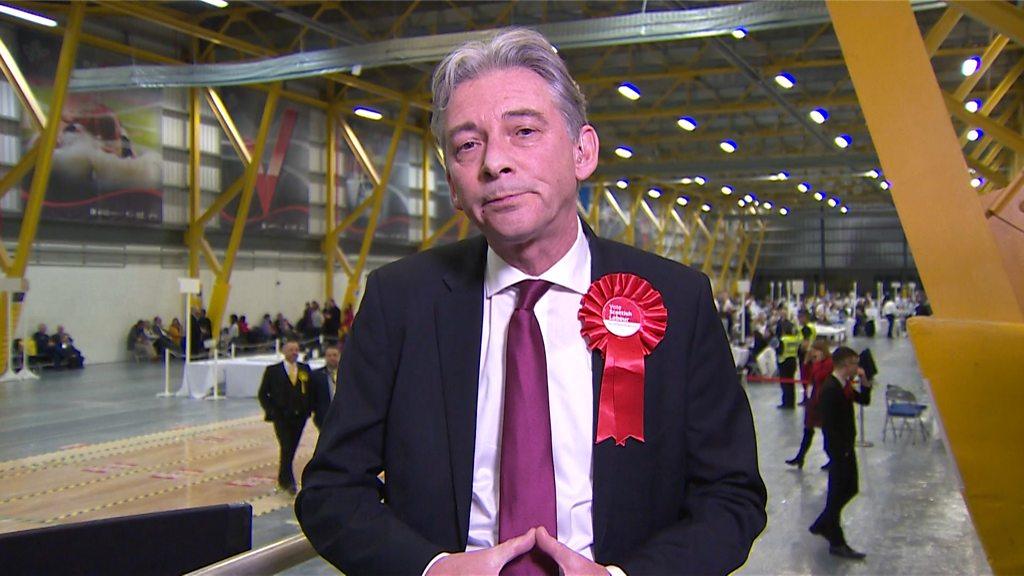Is Scottish Labour's position on independence changing?
- Published
- comments
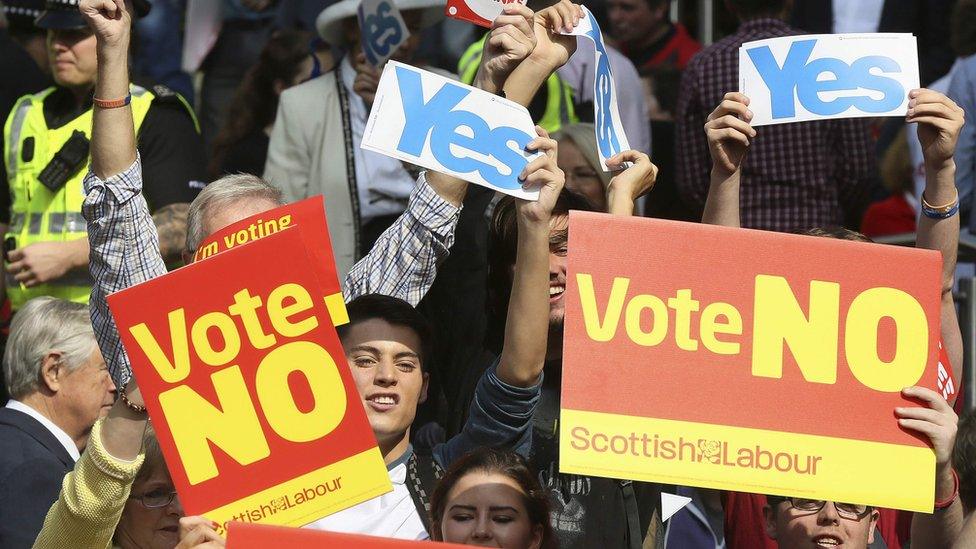
Scottish Labour were key drivers of the No campaign in 2014 - but could they now back a second vote?
Scottish Labour is having a very public debate about its future in the wake of a humbling defeat in the general election. So, could the party be about to back a second independence referendum?

The Labour Party is searching for answers - and a new leader - after a devastating night of general election results, which consigned the party to five more years of opposition at Westminster and near irrelevance in Scotland.
North of the border, Labour lost six of their seven seats and almost a third of their voters from 2017, taking less than 20% of the vote for the first time in the modern era.
The party which once dominated Scottish politics hasn't just been supplanted at the top by the SNP - they have now fallen far behind the Conservatives as the third party.
Leader Richard Leonard has promised a "swift evidence-based review" - and has said the party "must develop a clear constitutional offer that wins back the confidence of voters who in this election felt that we did not offer clarity over Scotland's future".
For all Mr Leonard would probably prefer this to be an internal review, many of his MSPs, councillors and former MPs have already started the debate in the press and on social media.

Shifting stance
During the election campaign, Labour's position on the holding of a second independence referendum softened somewhat.
The party had previously sought to take a firm line against independence and indyref2, but seemed to accept that should SNP votes be needed to prop up a Labour administration at Westminster, this could eventually shift.
They ended up going with a sort of "maybe later" position, that a second referendum would be justified if pro-independence parties won a majority in the 2021 Holyrood elections - a position which sat slightly uncomfortably with the fact there was already a pro-independence majority of MSPs.
In light of the SNP's landslide win in the general election, some have suggested the party needs to go further and come off the fence entirely.
Allow X content?
This article contains content provided by X. We ask for your permission before anything is loaded, as they may be using cookies and other technologies. You may want to read X’s cookie policy, external and privacy policy, external before accepting. To view this content choose ‘accept and continue’.
To be clear, we are not yet at the point where senior Labour figures are actually backing independence. But many seem to be coming around to the idea of backing a referendum.
Former MP Ged Killen, who lost his Rutherglen and Hamilton West seat to the SNP, wrote on Twitter that he had "campaigned on a promise to vote against indyref2 - but I lost".
He said: "The SNP made massive gains on a promise to hold another referendum, and as democrats we must accept it even if we don't like it."
This was echoed by Labour councillor Alison Evison, who chairs council umbrella body Cosla. She said that a "fragile" democracy could be strengthened by "enabling the voice of Scotland to be heard, external through its formal processes, and that must mean a referendum on independence".
This position is not universal, though - MSP Jenny Marra replied to Ms Evison's tweet about a referendum saying: "We had one, just five years ago. Once in a generation. Fully democratic."
Richard Leonard: "We have to look at what we said about Brexit and about the whole constitutional question in Scotland"
MSPs and mandates
A number of prominent Labour MSPs have suggested that the decision on whether there is a referendum should be put in the hands of the Scottish Parliament.
Monica Lennon, the party's health spokeswoman, said that "if Boris Johnson isn't prepared to grant this request [for indyref2], he should allow the Scottish Parliament to decide...the future of Scotland must be decided by the people of Scotland".
There might be a subtext here though that the decision on whether or not to hold a referendum would take place on the other side of the 2021 elections - making them effectively the crunch moment of decision.
Neil Findlay, who is stepping down as an MSP at those elections, has also said that "we cannot deny the people of Scotland a referendum where the majority is calling for it".
Be he added that "there would need to be a clear proposition - something that is impossible until we know the outcome of Brexit, and that will not happen in 2020". By necessity, this would kick the referendum off into 2021.
Allow X content?
This article contains content provided by X. We ask for your permission before anything is loaded, as they may be using cookies and other technologies. You may want to read X’s cookie policy, external and privacy policy, external before accepting. To view this content choose ‘accept and continue’.
Another MSP, Daniel Johnson, tweeted that the general election result was not a mandate for indyref2 and that "the Scottish Parliament is Scotland's expression of self governance, it is Holyrood elections that were the source of the last mandate".
Councillor Paul O'Kane said many voters had told him they were voting SNP, external as a "one time thing", and that "surely 2021 is the true test of feeling on the issue".
Mr Leonard has also phrased his thinking in the context of the 2021 elections, and how how Labour needs to go into that campaign offering "a clear prospectus for a transformed society and economy".
As well as having a position on a referendum, though, Labour are going to have to decide which side they are on when it comes to the issue itself. Jeremy Corbyn's attempt to have a "neutral stance" on Brexit doesn't appear to have done him any favours.
As MSP Colin Smyth pointed out, "whether or not to have a referendum isn't a position, it's a process - it still leaves the public wondering what we stand for".
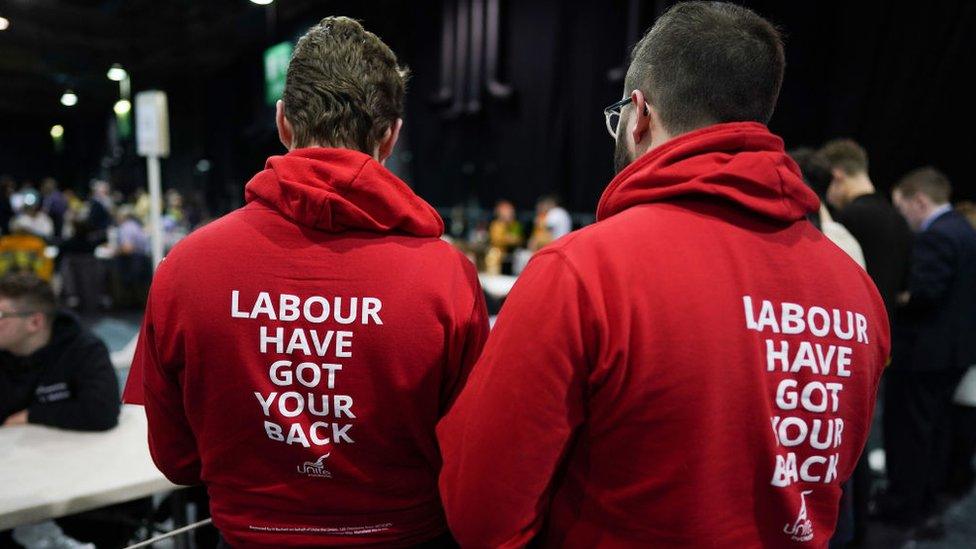
A federal solution?
On election night, several Labour figures observed that the party was standing in the middle of the road on the big constitutional issues - that being an ideal place to get run over.
The SNP and the Conservatives have found success (one more than the other, but still) by occupying firm positions on either side of the binary issues - one is the party of independence, the other is the party of the union. In 2019, one was pro-EU, the other pro-Brexit.
Labour meanwhile were caught in the middle on both issues, plaintively asking if voters wouldn't rather talk about something else, like inequality or the NHS.
And yet, some still see a third way through the independence debate, a compromise position of sorts - federalism.
This would rebuild the structure and constitution of the UK so that it more resembles the United States, with formal separation of powers between state governments and the central one.
Paul Sweeney, who lost his Glasgow North East seat to the SNP, said that "the British state as it is currently constructed is not sustainable", calling for a "radical" change.
He said: "A more federal relationship is something that urgently needs to happen, and I think we need to be galvanised to present an argument that that needs to happen."
Mr Findlay campaigned heavily for a federal solution in 2014 - but interestingly is now even thinking about what Labour's position should be after independence.
"If the people accept a new prospectus for independence, so be it," he wrote, external. "That is democracy, and if it happens, Labour should offer its own prospectus for a progressive, socialist, outward-looking and egalitarian independent country."
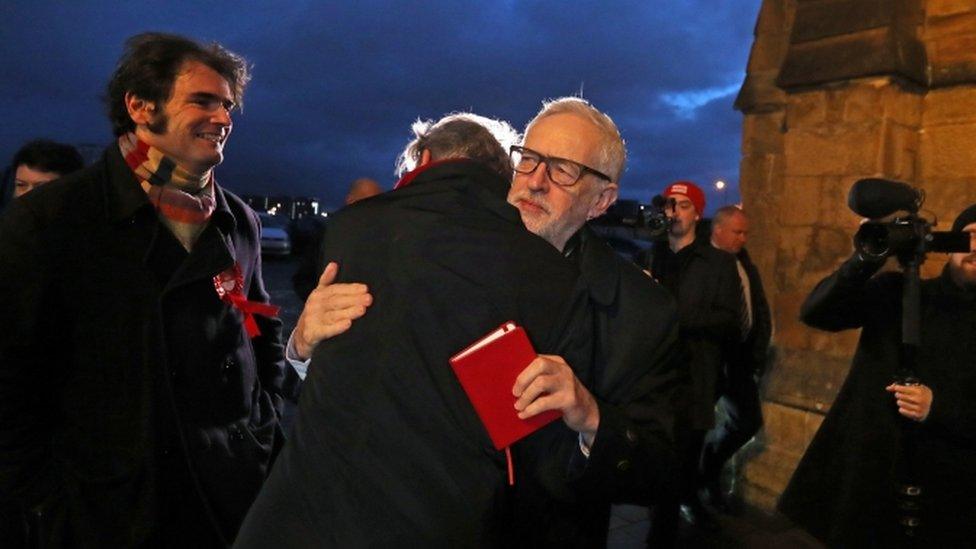
Is Scottish Labour's leadership too close to the UK party?
The 'branch office' effect
Almost as important as where Labour ends up on indyref2 is who is actually seen to make the decision.
Some in the party north of the border are concerned that they have become too closely entwined with the UK party leadership, giving Scottish Labour less ability to appeal specifically to Scots.
This was a key concern voiced by Johann Lamont when she quit as party leader in 2014, accusing Westminster colleagues of treating Scotland like a "branch office". This was something Kezia Dugdale, never a supporter of Jeremy Corbyn, sought to rectify in her time in charge.
But some think the party - now led by a Corbyn ally in Mr Leonard - has drifted too much back into that "branch office" role.
Allow X content?
This article contains content provided by X. We ask for your permission before anything is loaded, as they may be using cookies and other technologies. You may want to read X’s cookie policy, external and privacy policy, external before accepting. To view this content choose ‘accept and continue’.
Colin Smyth wrote on Twitter, external that "the rolling back of anything resembling autonomy for Scottish Labour by the UK Labour leadership meant we had nothing to say on the big constitutional issues facing Scotland except what the London leadership decided the party could say".
He added: "Let's begin by deciding the party in Scotland agrees our position, not London, then setting out a radical alternative to independence and the status quo."
Anas Sarwar, who lost out in the leadership election to Mr Leonard, said that "rather than making rash pronouncements on indyref2, I think that we need a genuine period of reflection and some humility from those who led us to our worst EU election result and worst general election results in living memory".
As much as the party would like to take a moment to lick their wounds and regroup, time is not on their side. Nicola Sturgeon is heading into a constitutional confrontation with Boris Johnson, and is pushing to hold a referendum inside the next year.
If Labour are to play a meaningful part in the debate to come and avoid being caught in the middle of the road, they will need to come to a position quickly.


What are your questions about the general election? You can let us know by completing the form below.
In some cases your question will be published, displaying your name and location as you provide it, unless you state otherwise. Your contact details will never be published. Please ensure you have read the terms and conditions.
If you are reading this page and can't see the form you will need to visit the mobile version of the BBC website to submit your question.
- Published16 December 2019
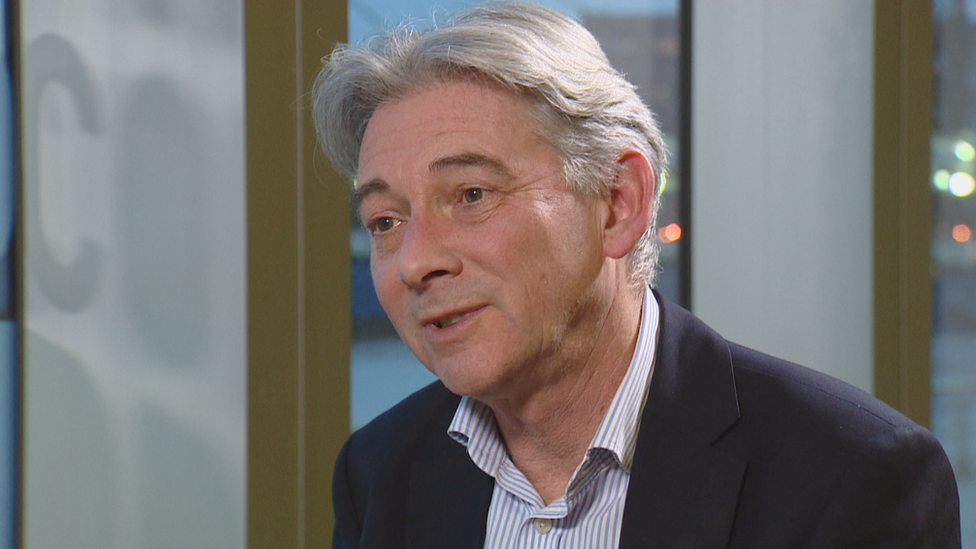
- Published15 December 2019
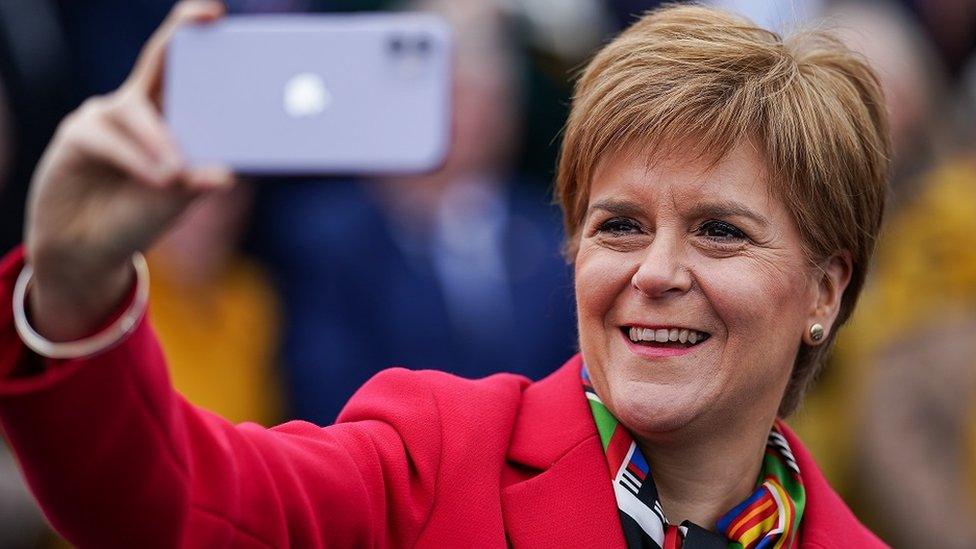
- Published13 December 2019
